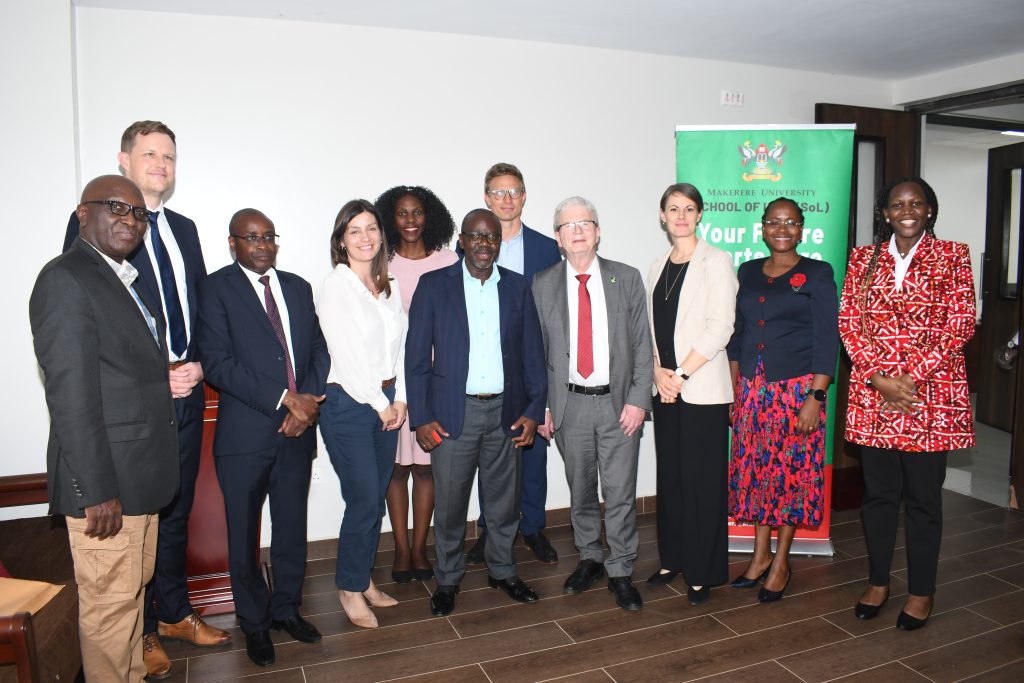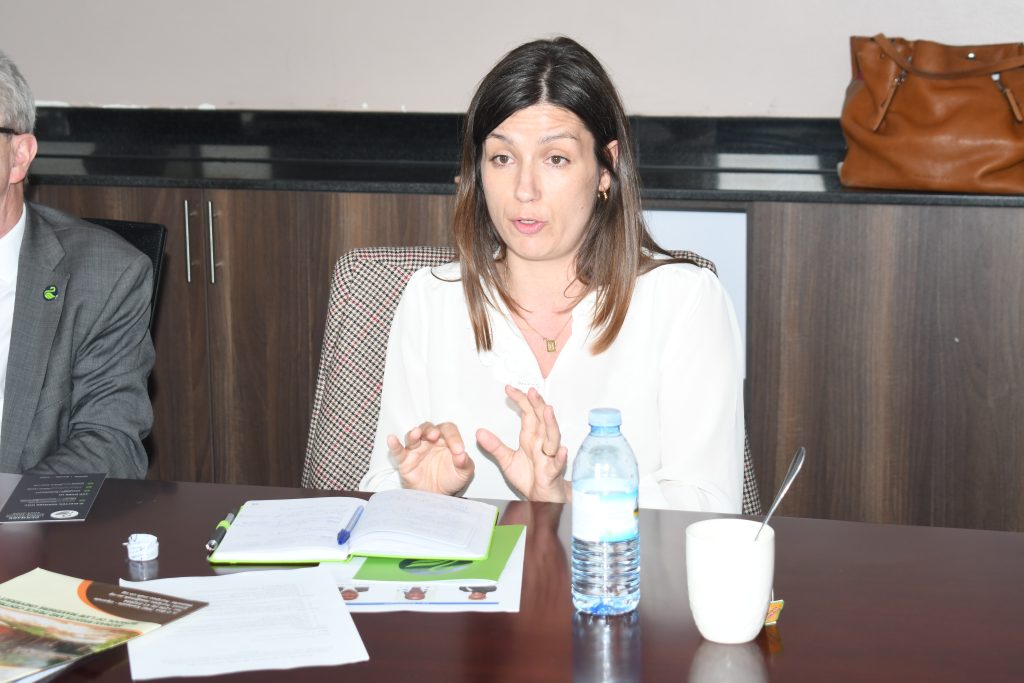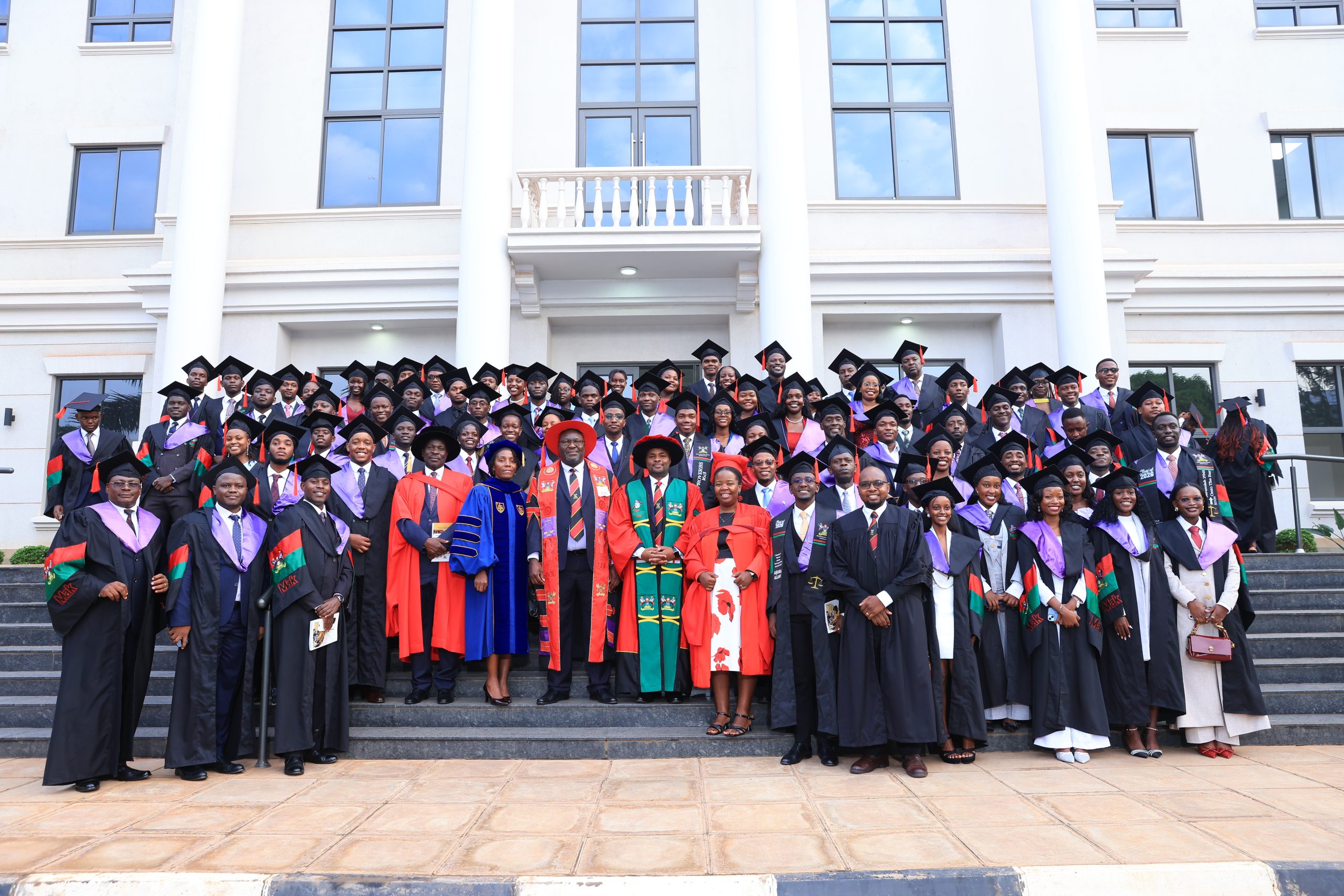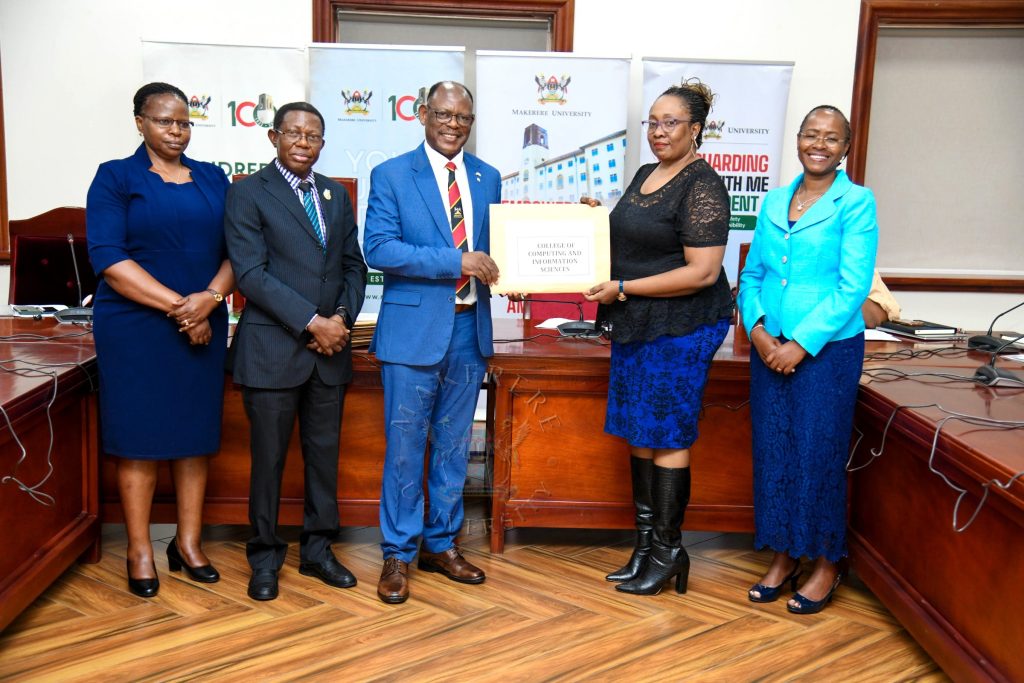Round table discussion on regional peace and security within the Great Lakes Region of Africa
On 26 April 2024, the School of Law at Makerere University hosted Denmark’s Special Representative for UN Security Council Candidature Mr. Holger K. Nielsen, to discuss prominent and emerging issues of concern on peace and security, climate change, women and vulnerable groups in the Great Lakes Region of Africa. He was accompanied by: the Deputy Director in the Danish Ministry of Foreign Affairs’ Department for Multilateral Cooperation, Ms. Julia Winding; The Ambassador of the Royal Danish Embassy in Uganda, Ms. Signe Winding Albjerg; The Deputy Head of Mission and Head of Cooperation of the Royal Danish Embassy in Uganda, Mr. Adam Sparre Spliid; and the First Secretary of the Royal Danish Embassy in Uganda, Mr. Anders Haue Korsbak. The round table was also attended by senior academic staff of Makerere University who are experts on regional peace and security, gender and climate issues including: Prof. Sarah Ssali, Assoc. Prof. and DEAN, School of Women and Gender Studies, Prof. Kasaija Phillip Apuuli from the Department of Political Science and Public Administration; Mr. Godber Tumushabe, lecturer at the School of Law under the Human Rights and Peace Centre; Dr Sylvie Namwase, lecturer at the School of Law under the Department of Law and Jurisprudence; and Dr Tusasirwe Benson, Head of the Department of Public and Comparative Law. Dr Tusasirwe also represented the Principal of the School of Law as host of the roundtable meeting. The meeting was also attended by Ms. Patricia Namakula, the Director of Research at the Centre for Multilateral Affairs.

At the outset, the participants emphasized the importance of streamlining the Great Lakes Region’s peace and security concerns into relevant University curricula and at the School of Law in particular. They also highlighted the need to support more collaborative regional research and publication on peace and security.

The participants then examined the current challenges and opportunities for a stable Great Lakes region, including the viability of regionally led peace initiatives and the role Uganda might play as an important regional actor. It was understood that leadership and personalities remain some of the main challenges for peace and stability in the region, but opportunities also exist in the growing youth demographic and some of the stronger democratic governments in the region which can be supported to advance regional peace and stability.

Participants also explored initiatives that have proven successful in promoting the Women, Peace and Security (WPS) agenda in conflict resolution and peacebuilding in the Great Lakes region. Here is was noted that while mainstreaming the WPS agenda into normative standards in the region was progressing considerably well, some resistance was emerging against recognizing the problem of sexual violence against men, particularly that which is committed in the context of armed conflict. It was also noted that some regional mechanisms such the International Conference of the Great Lakes Region (ICGLR) had significant developments such as the ICGLR Regional Training Facility (ICGLR-RTF) on sexual and gender based violence (SGBV) based in Kampala, which could be an opportunity for social norm change around conflict related sexual violence in the region.

On the question of climate change and vulnerable groups such as refugees, the meeting noted that the biggest challenge in the region was lack of climate financing. It was observed that there was no clear effort to support vulnerable countries to access climate funds even as challenges continue at the global level to get richer countries to contribute more to the climate financing agenda. As such, most of the climate change and related vulnerability issues in the region would likely to remain unless there are targeted and sufficient financial interventions. On the subject of climate adaptability and mitigation the Inter-Governmental Authority on Development, IGAD, was identified as a major regional actor which had developed some significant mechanisms on adaptability including early warning systems.

The meeting then examined the MONUSCO mission withdrawal from the Democratic Republic of Congo (DRC), what it might mean for the WPS agenda in the region, and how the ensuing security gaps might be filled. The complexity of the DRC context was recognised and it was emphasized that any attempts to address its issues must involve the regional security and political actors with a focus on more proactive solutions. This implicates larger questions around Africa’s membership on the UN Security Council and the debate surrounding reform of the veto power and permanent membership on the Council.

Finally the participants suggested various ways in which Denmark as a prospective member of the UN Security Council, could support regional efforts to promote peace in the Great Lakes, emphasising the need to bring more attention to enforcement of regional normative standards by identifying key actors on the ground and supporting them with the financial means to achieve their goals. On their part, local and regional actors had a major role to play in pushing for accountability and transparency in managing the financial resources meant to address the region’s challenges. The meeting also emphasized the importance of supporting reforms to the UNSC to reflect a more equal playing field for Africa, especially considering that the larger percentage of Council’s discussions and resolutions are about Africa.





